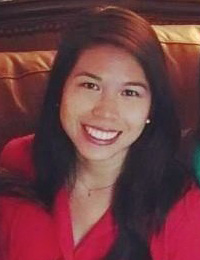Teach For America launches a new initiative to bring teachers from across the AAPI spectrum into the classroom to help AAPI students deal with the realities they face every day.
By Teresa Fausey

Sarah Ha, Managing Director of TFA’s Asian American and Pacific Islander Initiative
When it comes to education—and society in general—the model minority myth often applied to all Asian Americans, like all myths that lump unique individuals into a homogeneous group, does more harm than good. In case you’re unfamiliar with the Myth of the Model Minority, it goes something like this: All Asians are super smart (especially in math and science), super hardworking (but aren’t looking to lead), don’t want to rock the boat, and don’t need any help, because they’re already doing great.
Of course, the Myth has a lot of problems.
The Asian American and Pacific Islander (AAPI) “group” is actually made up of 48 different ethnic groups that speak more than 300 languages. And unlike many diverse groups in America, 69 percent of AAPIs are foreign born.* Also, many AAPI students are unfamiliar with the US and its culture, have limited English language skills, may face bullying and discrimination, and live in poverty. Serious challenges in the classroom—and in life. Then, there’s the greatest Myth buster of all—regardless of their ethnicity, every single one of them is a distinct individual—with different abilities and talents, different dreams and goals, and different life experiences. It turns out there is no Model Minority…no Myth. Just children, who want and need to learn.
Showing Initiative
Teach For America (TFA), a nonprofit organization that helps eliminate educational inequities, trains would-be teachers to understand and meet the needs of America’s most underserved students. In return, corps members agree to teach for two years a high-need location across the US.
Always looking for new ways to serve students, TFA recently launched its Asian American and Pacific Islander Initiative. By recruiting, training, and placing AAPI teachers in underserved schools, the organization is confident that the challenges AAPI children face can be met more effectively.
To help ensure the success of the new Initiative, TFA has hired a professional with a solid understanding of the issues AAPIs may face. He name is Sarah Ha, and she is the first, and current, managing director of TFA’s Asian American and Pacific Islander Initiative. Prior to taking on this role with TFA, Sarah, a graduate of University of California, Los Angeles, worked for the Asian & Pacific Islander American Scholarship Fund.
Sarah explains why she is so committed to supporting the AAPI community: “Many of the social realities our AAPI students deal with every day are often overlooked, because there is an acceptance of the persistent stereotype that says AAPIs are not in need of any attention, or that they come from well-to-do backgrounds. When I think about that, it makes me consider my own background, recognizing that my own personal narrative is not anything like the Model Minority Myth.
“I remember growing up feeling pretty inadequate—feeling that I fell short of this perception. I think from a young age, it made me think about my identity, and what that meant in connection to the larger AAPI community,” she says. “I had to find a way to translate my own personal experience—coming from a humble background, having been an English language learner, being the first in my family to go to college, and having to achieve beyond my limited social and cultural capital—into a public issue and advocate on behalf of the AAPI community, so that no student gets lost in the system because of a mistaken perception.”
Sarah’s mission is to find AAPI leaders who will bring experience, talent, and energy to the classroom, as well as an understanding of the challenges these students face. Studies indicate that teachers who share similar racial, ethnic, or economic backgrounds with their students can have a significant impact on student engagement and success. Sarah will soon embark on a “listening tour” that will enable her to visit many communities and learn about their specific needs from the people who live there.
To build a pipeline of talented AAPI leaders, both inside and outside the classroom, TFA has also launched an Underclassmen Development Initiative intended to foster healthy identity development among AAPI college students. The Initiative’s goal is to encourage the students to retain their unique identities and cultural values, while developing new and critical skills that will make them effective leaders in the AAPI community and beyond.
Amanda Tran (Bay Area Corps ’12)

Amanda Tran
Growing up in Columbus, Indiana—a small, mostly white community—Amanda Tran says she felt as if she “stuck out.” When she moved to Los Angeles to attend the University of Southern California (USC), she discovered a different world—one that helped her get in touch with her identity.
“I don’t think I really understood my heritage,” says Amanda, whose parents came to the US after the Viet Nam War, “until I surrounded myself with other children of Asian immigrants and heard their stories.”
Amanda soon joined an organization run by USC undergrads called Troy Camp that raises funds to send local children to a weeklong camp each spring, mentors and tutors those children all year long, and sponsors outings. She became a volunteer and camp counselor.
While looking for more ways to work with kids, she heard about Teach For America. “I went to the Teach For America website to research it…and an hour later, I applied. It was the only place I applied!” She was accepted and never looked back. Now Amanda is teaching preschoolers, which she loves. And after finishing her TFA two-year commitment this spring, she will continue to teach. “I’ve already applied for a position with a new school that’s opening in Los Angeles. I really want to stay in the classroom.”
*Source: US Census Bureau, Population Division, National Commission on Asian American and Pacific Islander Research in Education (2011). The Relevance of Asian Americans & Pacific Islanders in the College Completion Agenda, New York NY.






